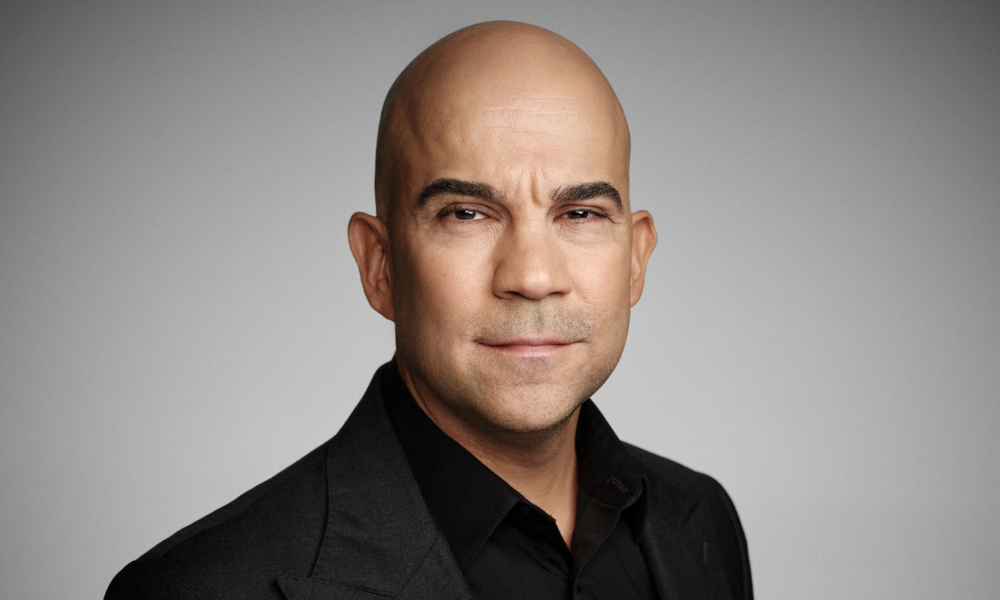In 2023 alone, Montreal-based software giant Valsoft made 26 acquisitions – 12 in North America and 14 across Europe, the United Kingdom, and Australia. Sitting at the legal helm is general counsel David Felicissimo, who points out to Lexpert a shift in focus toward bigger deals.
“One of our acquisitions in 2023 [was] larger from an acquired revenue point of view. We’ve done some larger acquisitions than we have in the past, specifically in the US and in Germany.”
But it’s in closing these acquisitions that Felicissimo sets himself apart from other in-house teams. Being a multinational organization with a valuation of over $1 billion, he and his team are still very hands-on.
“Oftentimes, we’ll see that in-house teams play less of an active role in terms of transactions,” says Felicissimo. “Our team will, for the most part, handle most transactions in-house when it comes to Canada, the US, the UK. That’s because we have people on the ground who have vast experience with M&A at Valsoft.”
Felicissimo says that Valsoft is completing around 50 percent of its deals in-house. And for the rest, they work with external partners with solid and long-lasting relationships.
Despite the team’s success, there are still challenges faced during acquisitions. Felicissimo identifies two key aspects. First, they deal with sellers of small to mid-sized businesses, navigating their stress and ensuring a smooth transition. Second, they cope with the complexities of different jurisdictions.
Felicissimo highlights the contrast between deals in Italy and Spain compared to North America. “In terms of jurisdictions, if you look at our footprint over the last few years, we’ve had a deeper push into greater Europe and have completed quite a few acquisitions,” he says. “As well as Italy and Spain, France, Netherlands, Scandinavia. Our growth will probably continue primarily into North America, the UK, Australia, and Europe – however, we’re not close to any specific region.”
In dealing with all these significant acquisitions across various countries and cultures, Felicissimo quickly reminds the legal team that there’s no one-size-fits-all approach and that each case must be dealt with individually.
Read next: How to handle employees after a merger or acquisition
“I always tell our M&A team that no acquisition is the same,” says Felicissimo. “It’s very hard to have a copy-paste approach to all acquisitions. I know from a non-lawyer’s point of view, they’re very process-oriented, if you will. But for us, for a legal team dealing in a highly entrepreneurial environment, it’s easy to be caught up in the acquisition flow.
“I keep telling our team that we have a vastly different job than our non-legal M&A team. Their job is to close, to basically acquire businesses, assuming it fits the actual model. Our job is to protect the mothership.”
It’s easy, Felicissimo admits, to see the closing time creeping up and get bitten by the entrepreneurial bug – urging for speed. However, he remains steadfast in saying that due diligence is the key to success in M&As.
“The important part is not to take any shortcuts,” he says. “We have a different role than our M&A team does. We try as much as possible to align with them, to focus on the bigger picture, but at the same time, it’s incredibly important to remember what a legal team’s first and foremost responsibility is.”
And with Felicissimo’s team overseeing merger after merger, safeguarding from burnout is paramount. He tells Lexpert that this is an issue that many larger firms deal with – protecting employee well-being and fostering a positive culture around mental health. At Valsoft, he says there’s never one person wholly responsible for overseeing the deal – it’s a collaborative effort.
“On the M&A side, we try to avoid the deal being contingent on one person,” Felicissimo says. “The reason is if a vacation is set in the middle of a deal, we want to be able for another lawyer to step in efficiently and not have the deal slow down.”
Felicissimo says that sometimes someone on his team will shyly raise the issue of their upcoming vacation, seeking permission to go. Felicissimo is quick to say they deserve to take a break.
“It’s important to take time off and block,” he adds. “We always make sure that it’s a team effort – that anybody can basically step in if the need arises.”
Read next: Common risks during a merger or acquisition
And it seems other legal leaders should take a page from Felicissimo’s book. According to The National Study on the Psychological Health Determinants of Legal Professionals in Canada, lawyers with the highest proportions of psychological distress are women (63.7 percent), professionals working in the public sector or not-for-profit (58.0 percent), professionals between the ages of 26 and 35 (71.1 percent), and professionals living with a disability (74.3 percent).
In the face of such data, Felicissimo suggests a reward-based system. He explains that celebrating a deal or a milestone as a group can significantly impact an individual’s mindset.
“It might be a small reward, but it goes a long way. We try to have an event after every deal, whether that’s a dinner or whatnot, just to celebrate the closing. In [our] case, when you’re doing 25 deals, we’re obviously not having 25 events – but we tend to do it for more milestone events.”
And, finally, the golden key to preserving a legal team’s mental health is communication. At Valsoft, Felicissimo says they’re in constant contact with each other, which always helps share the burden.
“We’re constantly speaking three or four times a day. And so, you can really see early signs of if a person is stressed – everyone steps in and supports each other.”
THE STORY OF VALSOFT
Birth of the company
Valsoft started with an idea and vision and became one of the fastest-growing software consolidators in Canada – with offices across four continents and over 3,000 employees globally.
Hometown
Valsoft was born and raised in Montreal, contributing to Quebec’s economy through job creation and acquisitions.
Charity
Spearheaded with Valsoft’s sister companies, the launch of the Valsef Dream Big Foundation focused on supporting qualified charitable organizations through donations to improve the lives of Montrealers.
Slogan
Despite its meteoric growth over the last eight years, the company says it continues to abide by its motto: “Be Humble, Stay Hungry.”





